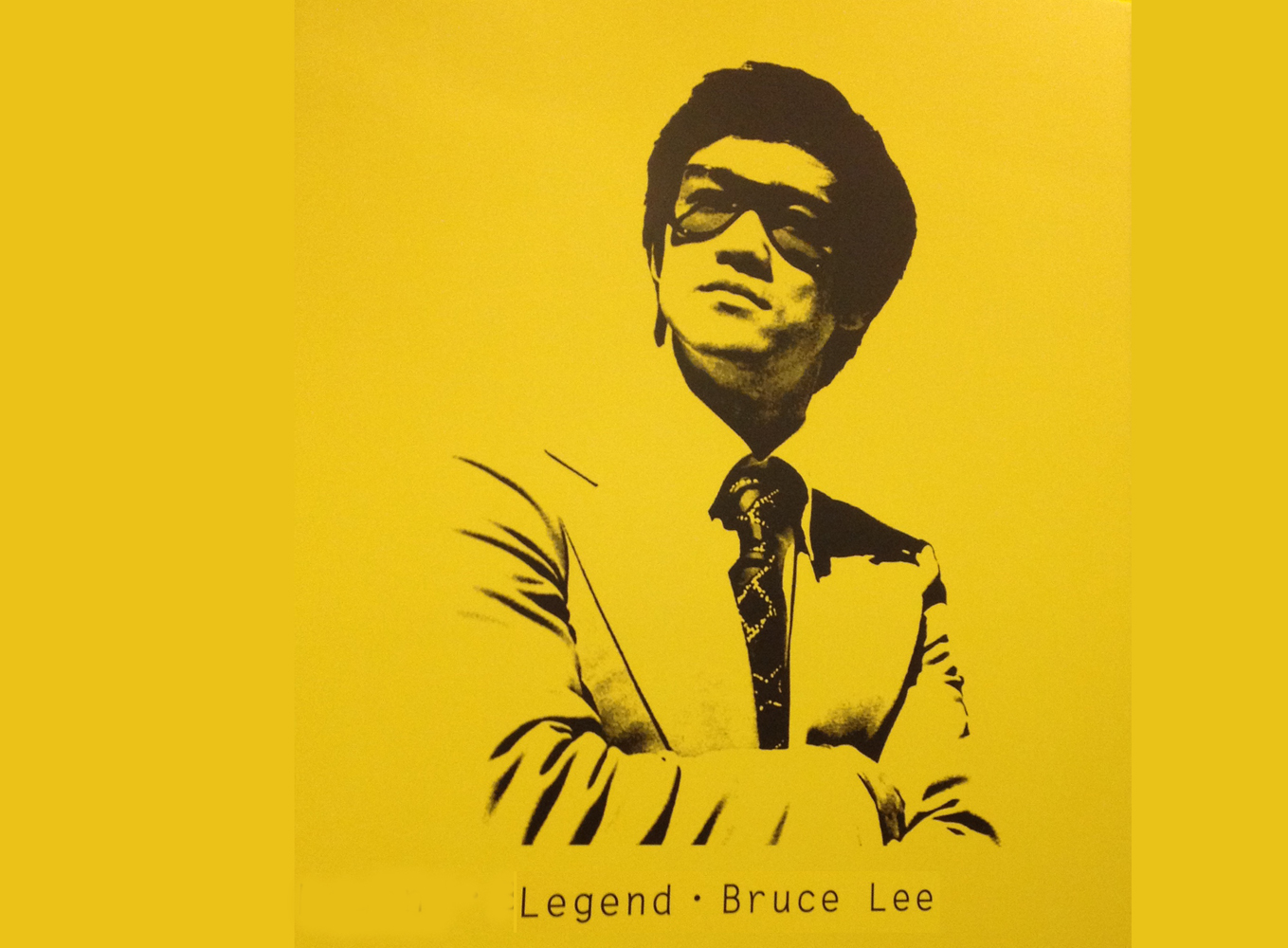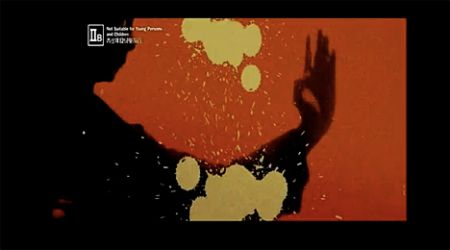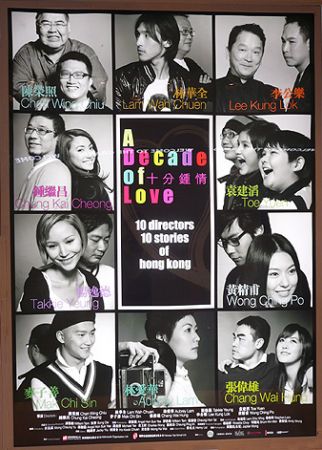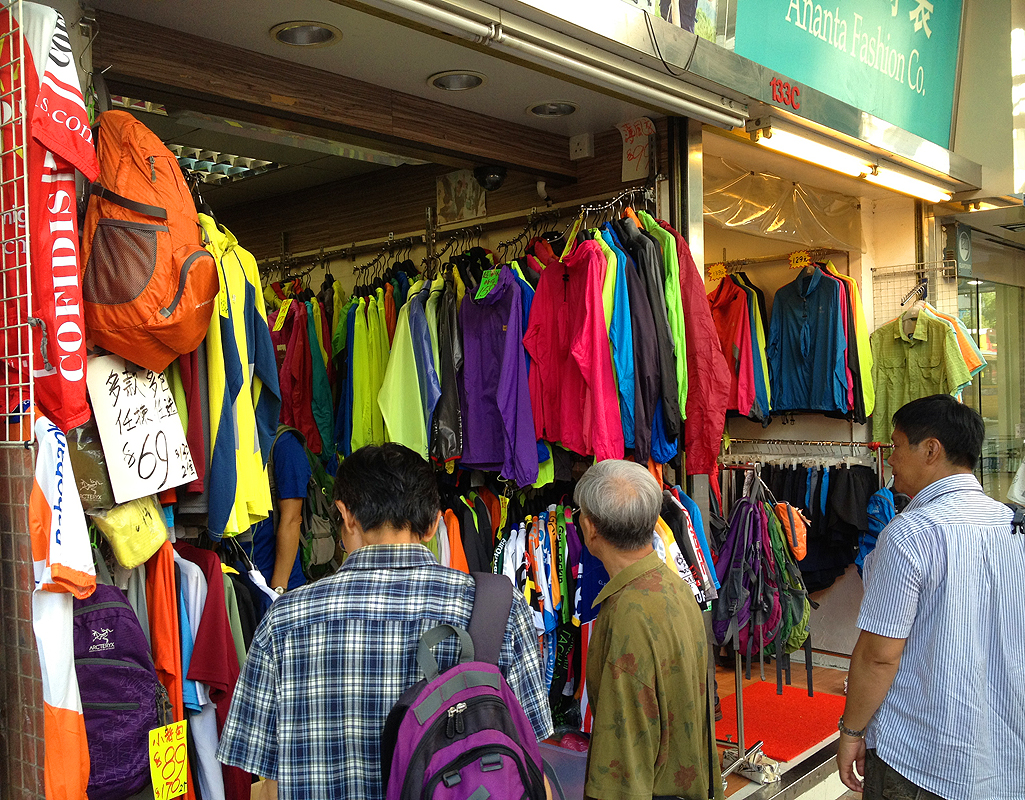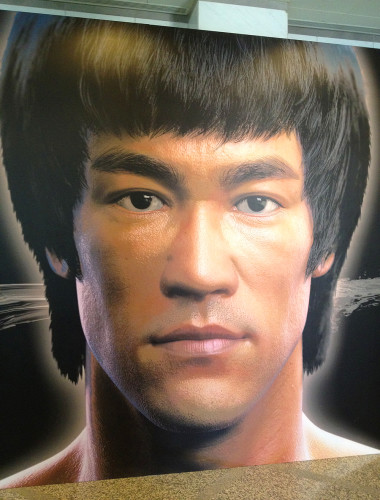
For decades Hong Kong has struggled to find the best way to honor the legacy of Bruce Lee. Part of the problem is that it’s hard to accurately state his wide influence on Hong Kong, Chinese people, and the world at large.
Bruce Lee was not simply an actor, a martial arts master, or a pop-culture icon, but also an innovator, a stereotype-crusher, a role model, a philosopher, and a confidence booster.
His explosive action films of the early 1970’s popularized Kung Fu and set off an international craze that ignited the Hong Kong film industry.
Often playing the underdog in his films, Bruce Lee championed the marginalized and oppressed. His fighting style captivated people around the globe and brought respect to both Hong Kong and to Chinese men in general. But Bruce Lee’s accomplishments go way beyond his movies.
The new exhibition Bruce Lee : Kung Fu – Art – Life launched on Saturday, is looking to shed more light on the man behind the legend. The show, which includes hundreds of items of memorabilia, original letters, hand drawn sketches, and exclusive interviews, marks the 40th anniversary of the actor’s death at age 32.
A collaboration between the Bruce Lee Foundation, the LCSD, and the Hong Kong Heritage Museum, the exhibit is the largest ever assembled in Hong Kong, and is scheduled to run for the next five years!
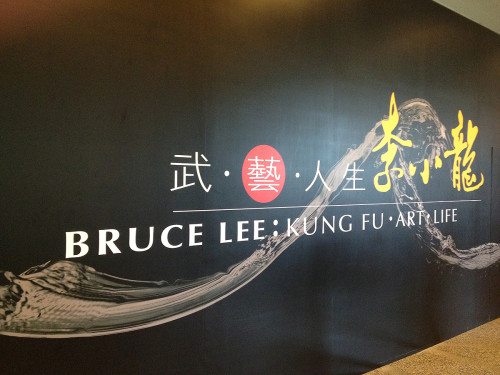
Getting your ticket
Due to the exhibition’s popularity, there is a booking system in place for tickets. Especially now in the early days of the exhibit, the easiest way to ensure you get in is to book online. (There is a quota of walk-in tickets available as well, but it’s worth booking, to be sure you get the session you want.)
Simply head to the Bruce Lee : Kung Fu – Art – Life website, input your contact information, and select the day and time you want to view the show.
When you arrive at the Hong Kong Heritage Museum, bring a print-out of your ticket reservation, and they will scan the barcode and give you your ticket. You are advised to arrive 30 minutes before the session begins.
The exhibit itself is free, however you do need to pay the general admission fee for the Heritage Museum, which is a measly $10 HKD (a little over $1 USD.) The museum is free on Wednesdays.
The exhibition
The exhibition itself is comprised of several parts, and is located on the second floor of the museum. Once you arrive and pick up your tickets at the windows to the right of the door, take the escalator up two flights to enter the show.
At the moment, there are three parts to the exhibition. The main section takes up half of the second floor and there is also a large showcase of Bruce Lee / Green Hornet memorabilia out in the second floor atrium. Additionally, there is a documentary film about Bruce Lee’s life that is 75 minutes long and shown in a separate area.
The main exhibit contains a series of rooms with tiled floors that give it a retro Hong Kong feel.
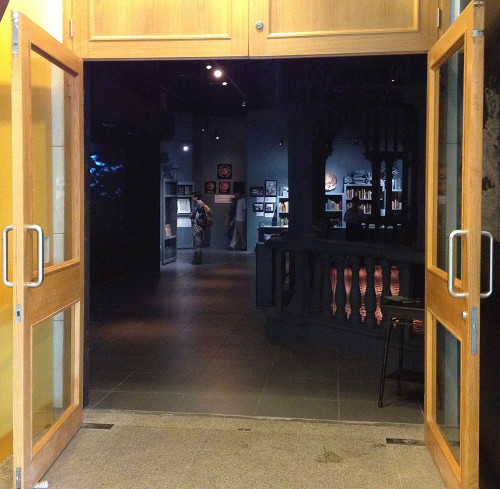
Once inside, attendees move from room to room, checking out photos, reading documents and viewing videos. If one room is too crowded, simply walk to a different one and come back to the crowded one as it thins out. If you study each item, be prepared to take around two-hours to view the main exhibition alone!
One quick note – they guards only let you in to the exhibit based on the time of your session. For example, if you have a 1:25 ticket, you can’t go in earlier.
Due to the strong interest in the show, the room is cleared out to make room for the next session. If you spend time watching videos it takes away time that you could be looking over interesting artifacts. It might be a good strategy to save the videos for last.
Out in the atrium, looking over the dozens of martial arts magazines that featured Bruce Lee on their cover, it’s possible to get a feel for just how celebrated he was during the time period.
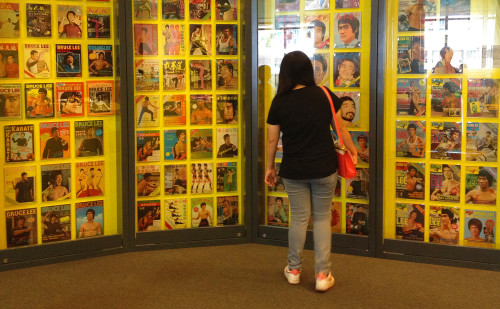
The Green Hornet items on display stem from the success of Bruce’s TV show that aired in 1966. Although it played for just one season, The Green Hornet, and particularly Bruce’s masked character Kato, were a major hit with young audiences.
It’s fascinating to see just how sophisticated TV show merchandising already was in the mid-1960’s. People familiar with American pop-culture will recognize many of the artifacts including PEZ dispensers, limited-edition enamel glasses, lunchbox and thermos sets, Viewmasters, collectible cards (similar to baseball cards,) stickers, puzzles, games, coloring books, walkie-talkie’s, and various children’s toys of all varieties.
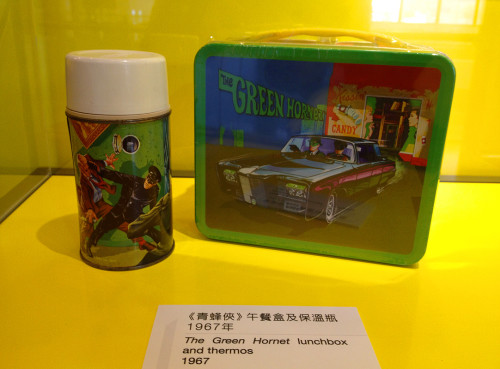
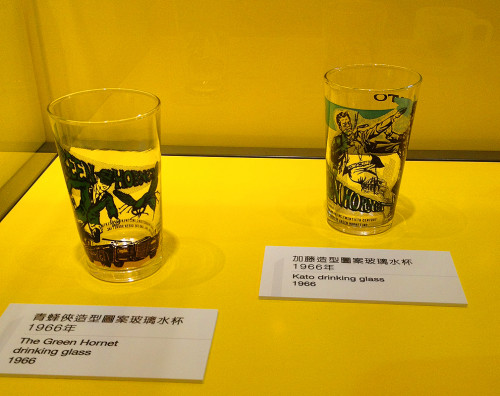
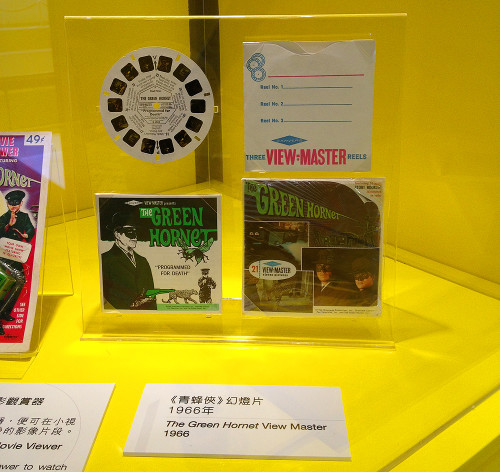
The documentary film is an additional 75 minutes long, so you should be sure to eat something before you go to the exhibition! The film is shown only at certain times of the day. Below is the schedule:
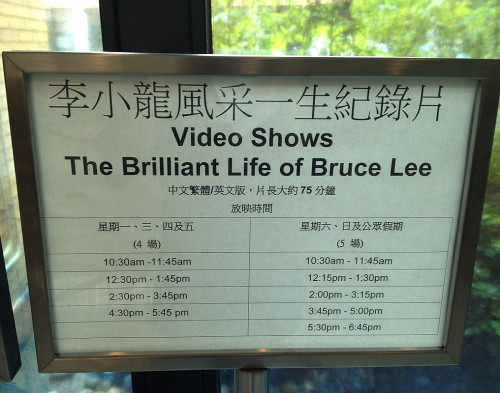
A few things you take away from the exhibition:
– Bruce was inherently inquisitive and a voracious reader who constantly sought out new books and better ways of doing things.
– His hunger for knowledge pushed him to constantly question the status quo and discover things.
– He adapted bits and pieces from different disciplines and styles, which was a radical departure from tradition.
– His philosophy allowed him to integrate multiple systems at once, rather than adhering rigidly to just one.
– Many of the trademark expressions he used liberally in his later films were already apparent in his childhood performance in the film, The Kid, shot when he was nine years old (in 1950!)
– Bruce Lee wore sunglasses at night! Growing up acting in films shaped his persona at an early age and developed his showmanship. Bruce Lee was a stylish guy!
About 50% of the exhibit is devoted to his film career, and contains posters and stills, and other memorabilia, which is interesting to film fans, but doesn’t bring new understanding to the man himself.
The 3D holographic film part of the exhibit doesn’t add much to the exhibition and perhaps could be devoted to something else in the future. Likewise, his iconic yellow track suit seems a little naked alone on a large podium that might be better utilized featuring something more fully developed. (How about letters from fans?)
The most interesting pieces of the exhibit are those that give a glimpse of the real, human Bruce Lee, rather than the mythical movie figure. His letters to his wife, his workout schedule, his notes on fight choreography, the doodles in his notebooks, and his writing on the underlaying philosophy of Jeet Kun Do were the most interesting parts of the show.
Getting there!
The Hong Kong Heritage Museum is a five minute walk from the Che Kung Temple MTR station, which is on the new Ma On Shan line. To get there, take the East Rail (aka the KCR,) to Tai Wai, and then transfer to the Ma On Shan Line and take it (towards Wu Kai Sha) for one stop to Che Kung Temple.
From there, take the escalator down and look for Exit A. Walk out exit A and you will be just beneath a new apartment complex.
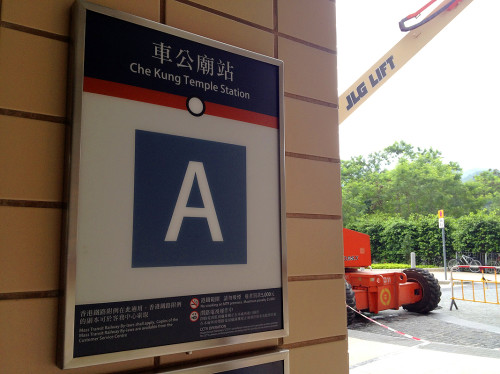
Walk for about ten steps and you will see an entrance to a path that looks like a park.
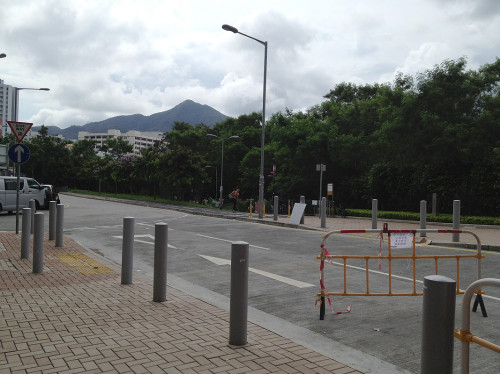
A sign post will point you to walk straight down the path towards the Heritage Museum.
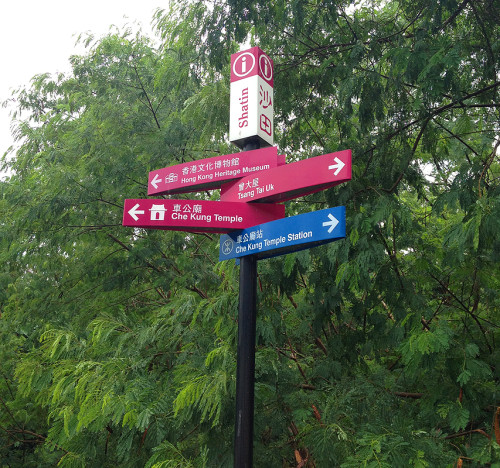
Continue for a minute or two and you will see a footbridge that crosses the water on your right. A sign here also indicates that this is the way to the Heritage Museum.
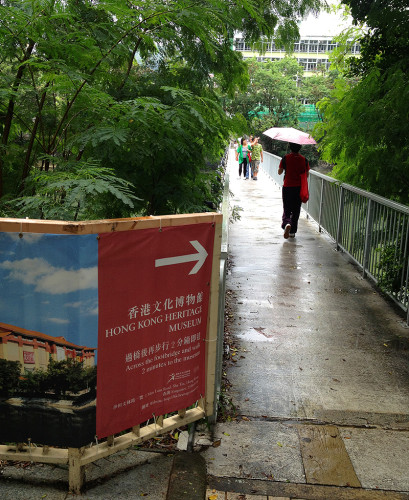
Walk across the bridge and you will see this view.
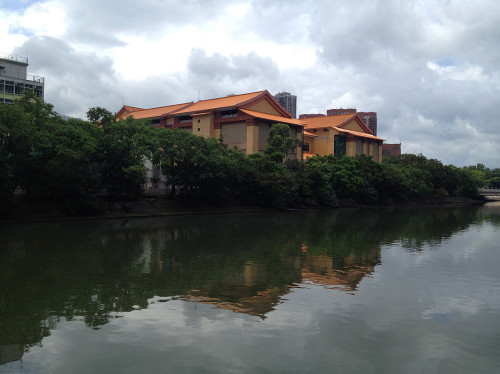
The new tan and brown building is your destination. Finish crossing the walkway and take a right. Look out for bikes, as this is a popular bicycle path!
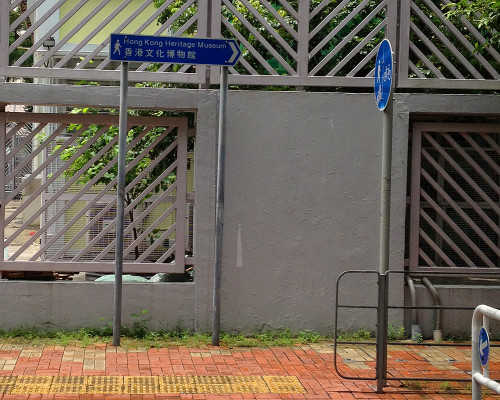
Walk along the path and you will come to the central entrance for the museum. Look for the sign at top.
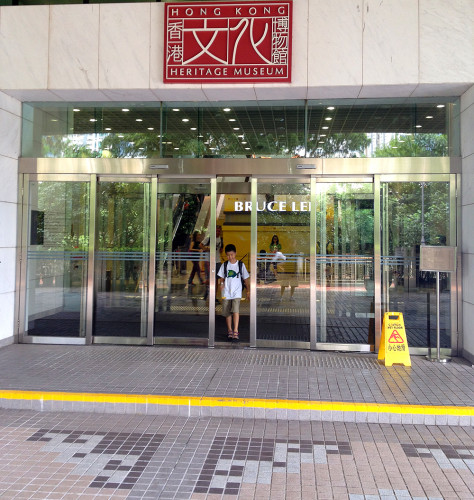
Here’s an over-view of your route from the MTR station to the museum:
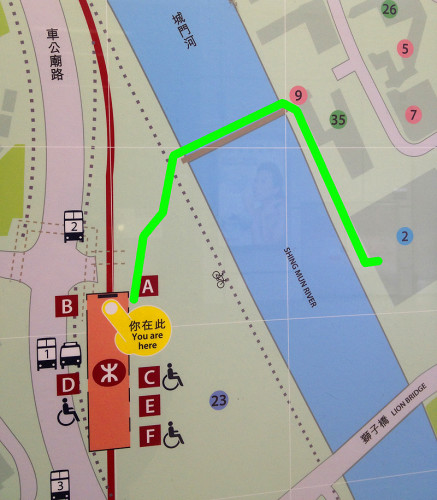
You know you’re in the right place when the doors open to reveal the huge stature of Bruce Lee!
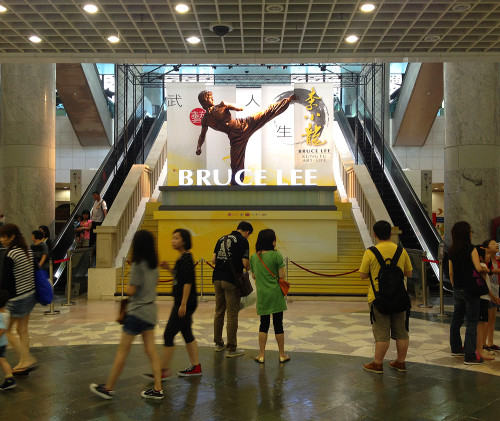
Here’s an exhibition preview by the Information Services Department of the Hong Kong government:
Recommended!
Bruce Lee: Kung Fu – Life – Art exhibition
Hong Kong Heritage Museum
1 Man Lam Road
Sha Tin, New Territories
Opening Hours:
The Hong Kong Heritage Museum is open from 10am to 6pm on weekdays, and from 10am to 7pm on Saturday, Sundays and public holidays. It is closed on Tuesdays (except public holidays). Wednesday is free day.
